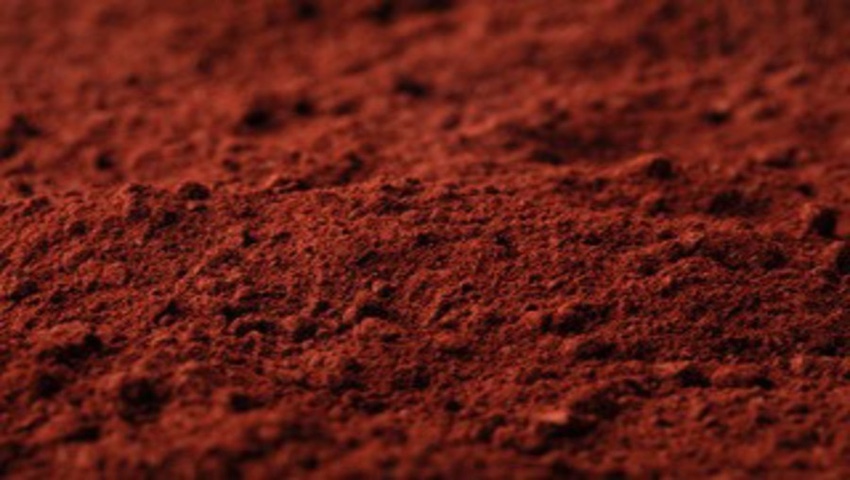Clinical trials have shown that astaxanthin supports brain health.

Reactive oxygen species (ROS) can damage cells and tissues through oxidation. Each cell in the human body can form 20 trillion ROS per day through normal metabolism and be attacked by these reactive molecules 10,000 times per day.1 These unstable molecules can damage cells and tissues through oxidation.
In a healthy human body, the antioxidant defense system keeps the generation of ROS and free radicals under control. However, these defenses grow weaker as we age, increasing the susceptibility of health conditions associated with oxidative stress. Supplementation with dietary antioxidants can help support the body’s defenses and mitigate the harmful effects of ROS. ROS and free radicals play significant roles in many neurological challenges.2
The Brain and Oxidative Damage
The brain is particularly vulnerable to oxidative damage from ROS due to certain physiological, functional and anatomical factors2, including:
Higher oxygen availability
Modest antioxidant defenses
Limited regenerative capacity
Multiple neurological cell types
To keep the brain functioning at its highest potential, it is important to keep ROS in check. Multiple studies have shown that supplementation with antioxidants can help support the body’s defenses and mitigate the harmful effects of ROS. Sourced from the microalgae Haematococcus pluvialis, astaxanthin can neutralize harmful ROS without generating pro-oxidants, which is a common side effect of other antioxidants.3 Lab research has shown that astaxanthin can cross the blood-retinal and blood-brain barriers with no adverse effects, enabling it to provide support to the central nervous system and minimize damage caused by free radicals.4
Astaxanthin is different than other carotenoids because it can span the entire cell membrane—the exterior, interior and across the entire lipid layer. This full-cell coverage further aids in protecting against ROS and lipid peroxidation.
Scientific Evidence for Astaxantin in Brain Health
A growing body of peer-reviewed research shows the general health benefits of astaxanthin supplementation, including the effects on cognitive function and brain health. Nakagawa et al. conducted a randomized, double-blind, placebo-controlled human trial to test for the effects of astaxanthin supplementation on phospholipid hydroperoxide (PLOOH), a substance that has been shown to accumulate abnormally in the red blood cells of dementia patients.5 After 12 weeks of supplementation with either astaxanthin or a placebo, researchers found that the erythrocyte and plasma PLOOH concentrations were lower in the astaxanthin groups.
Satoh et al. conducted a study that demonstrated that astaxanthin is effective for age-related decline in cognitive and psychomotor functions.6
Astaxanthin was shown to improve cognitive health and learning scores in a study of healthy middle-aged and elderly subjects with age-related forgetfulness conducted by Katagiri, K et al.7 These researchers studied the effects of astaxanthin supplementation on cognitive function. Ninety-six healthy, middle-aged and elderly subjects with some level of age-related forgetfulness were included in the study and received either astaxanthin (6 mg/d or 12 mg/d) or a placebo for 12 weeks. Changes in cognitive performance were assessed using two standardized memory tests—CogHealth and the Groton Maze Learning Test (GMLT). CogHealth scores improved in the 12 mg/d group compared to other treatments, and GMLT scores improved earlier in the 6 mg/d and 12 mg/d groups than the placebo group.
Satoh, et al. conducted an open-label trial with 10 male subjects aged 50 to 69 that presented symptoms of mild cognitive impairment.6 The 12-week study tested astaxanthin at a dose of 12 mg/d. Cognitive health parameters (CogHealth and P300) were assessed before administration, after six weeks and after 12 weeks. The authors concluded that administration of astaxanthin may improve higher brain function, including cognition, attention, memory, information processing and resultant behavior in older individuals. The study also demonstrated that astaxanthin at doses as high as 20 mg/d for four weeks did not produce side effects or safety concerns.
Recommended dosages for astaxanthin range from 2-12 mg/day, depending on health needs.
These and other recent scientific findings demonstrate that natural astaxanthin is an extremely potent scavenger of ROS and can help support cognitive function. The interest in astaxanthin as an ingredient in the cognitive health category is growing and will continue to grow as the relative ratio of older consumers increases. This development creates an opportunity for manufacturers to develop dietary supplements that can help people support brain function throughout life.
Tryggvi Stefánsson, science manager, Algalif, has a doctorate in microbiology and genetics from ETH Zurich in Switzerland. He joined Algalif in early 2014 and since 2015, has led the company’s R&D and scale-up department as Science Manager.
References
1. Niyogi KK, Björkman O, Grossman AR. “The roles of specific xanthophylls in photoprotection.” Proc Natl Acad Sci U S A. 1997 Dec 9;94(25):14162-7.
2. Patel M. “Targeting Oxidative Stress in Central Nervous System Disorders.” Trends Pharmacol Sci. 2016 Sep;37(9):768-778. DOI: 10.1016/j.tips.2016.06.007.
3. Beutner S et al. “Quantitative assessment of antioxidant properties of natural colorants and phytochemicals: carotenoids, flavonoids, phenols and indigoids. The role of β‐carotene in antioxidant functionsa.” J Sci Food Agric. 2001;81(6):559-568.
4. Tso, Mark O. M., Lam, Tim-Tak, “Method of Retarding and Ameliorating Central Nervous System and Eye Damage,” Patent No. 5,527,533. 1996. Washington, D.C., U.S. Patent. Available at: https://www.google.com/patents/US5527533
5. Nakagawa, K. et al. 2011. “Antioxidant effects of astaxanthin on phospholipid peroxidation in human erythrocytes.” Br J Nutr. 2011 Jun;105(11):1563-71. DOI: 10.1017/S0007114510005398
6. Satoh A et al. “Preliminary clinical evaluation of toxicity and efficacy of a new astaxanthin-rich Haematococcus pluvialis extract.” J Clin Biochem Nutr. 2009 May;44(3):280-4.
7. Katagiri M, Satoh A, Tsuji S, Shirasawa T. Effects of astaxanthin-rich Haematococcus pluvialis extract on cognitive function: a randomised, double-blind, placebo-controlled study. J Clin Biochem Nutr. 2012 Sep;51(2):102-7.
About the Author(s)
You May Also Like






.png?width=800&auto=webp&quality=80&disable=upscale)